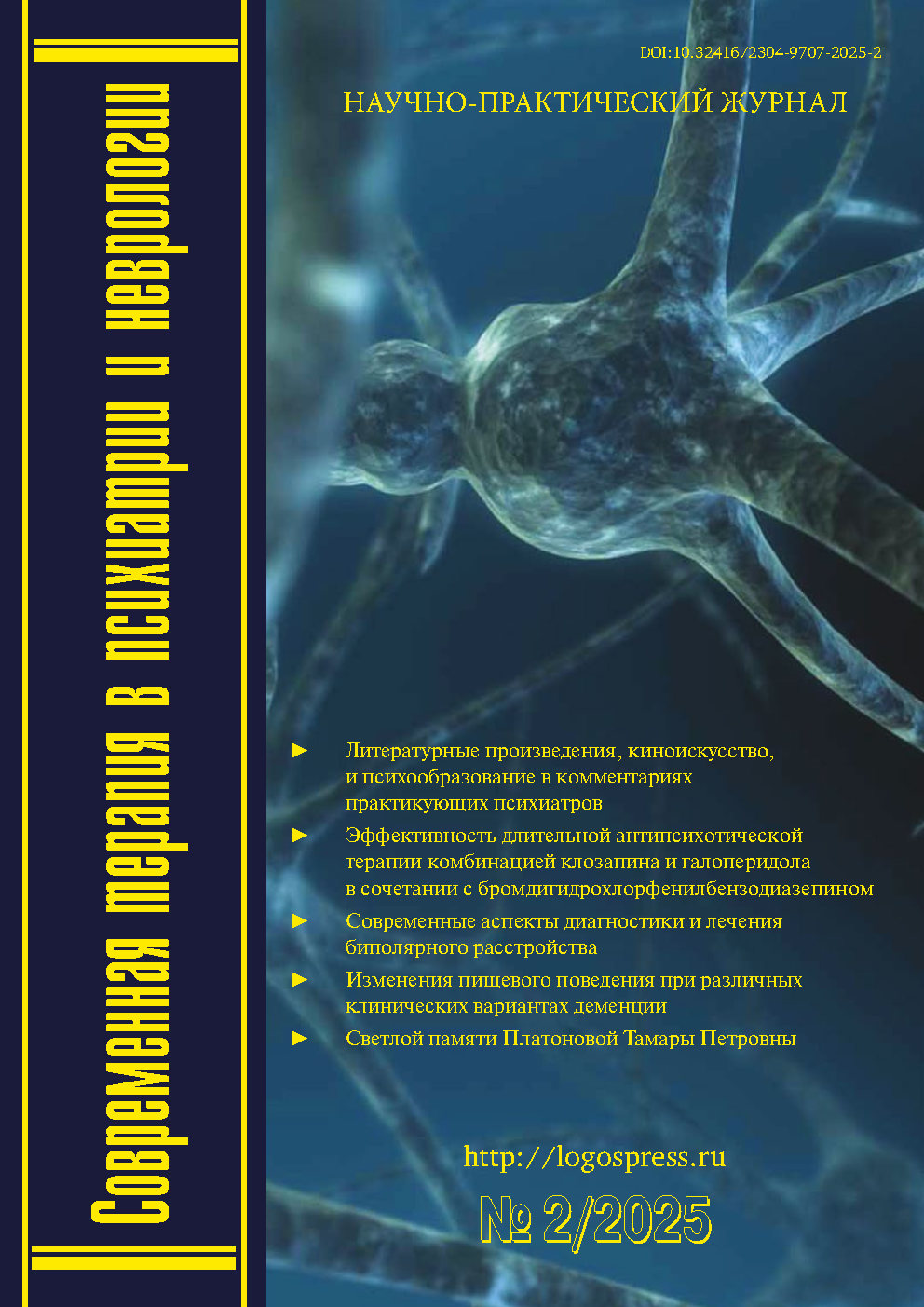employee
employee
employee
employee
employee
UDC 616
Dementia is a disease that should be considered as a multifactorial process [1, 3, 4, 6]. In patients with dementia, behavioral disorders can be observed frequently, sometimes at a strange level. These include delusions, misidentification syndromes, mood swings, delusions, aggressive behavior, and sleep disturbances. Among these changes, changes in eating habits were also noted [4]. The eating behavior of the elderly can be considered as a complex process determined by physiological, pathological, and psychological factors. Changes in diet or eating habits may not be noticeable upon initial admission to patients with dementia. As the disease progresses, patients may resist or be indifferent to eating, unable to properly absorb food when it's in the mouth (oral dysphagia) or aspirate when swallowing (pharyngeal dysphagia) [4, 5]. Such behavioral problems are perceived as a heavy burden by family caregivers, as they may experience stress, depression, and social isolation [2]. The purpose of this article is to study the general problems associated with nutrition, diet, nutritional regimen, and food intake observed in various clinical variants of dementia.
dementia, frontal-temporal dementia, Alzheimer's disease, semantic dementia, eating disorder
1. Ashurov, Z. Sh., Prohorova, A. V., Babaev, Zh. S., & Abdusattorov, Sh. T. (2018). Klinicheskoe znachenie ranney diagnostiki kognitivnyh narusheniy u pozhilyh pacientov. Zhurnal teoreticheskoy i klinicheskoy mediciny, (2), 115-118.
2. Babaev Zh. S., Uralova D. A. Uhod za pacientami s demenciey kak faktor riska psihicheskih zabolevaniy u uhazhivayuschih // Sovremennye aspekty profilaktiki zabolhttps://logospress.editorum.ru/ru/manage/content/Article/101270/references/add#evaniy. - 2021. - S. 34-35.
3. Feldman HH, Jacova C, Robillard A, Garcia A, Chow T, Borrie M, et al. Diagnostika i lechenie demencii: 2. Diagnoz. CMAJ 2008;178:825-36.
4. Cipriani G, Carlesi C, Lucetti C, Danti S, Nuti A. Eating Behaviors and Dietary Changes in Patients With Dementia. American Journal of Alzheimer’s Disease & Other Dementias®. 2016;31(8):706-716. doihttps://doi.org/10.1177/1533317516673155
5. ESPEN guideline on nutrition and hydration in dementia – Update 2024.Volkert, Dorothee et al.Clinical Nutrition, Volume 43, Issue 6, 1599 – 1626. https://doi.org/10.1016/j.clnu.2024.04.039
6. Fostinelli, S., et al. "Eating Behavior in Aging and Dementia: The Need for a Comprehensive Assessment." Frontiers in Nutrition 7 (2020): 604488-604488. https://doi.org/10.3389/fnut.2020.604488
7. Holm B. Factors associated with nutritional status in a group of people in an early stage of dementia. Clin. Nutr. 2003; 22: 385–389.
8. Hsiao H-C, Chao H-C, Wang J-J. Features of problematic eating behaviors among community-dwelling older adults with dementia: Family caregivers' experience. Geriatr. Nurs. 2013; 34: 361–365 .
9. Orlandoni P. et al. The outcomes of long term home enteral nutrition (HEN) in older patients with severe dementia //Clinical nutrition. – 2019. – T. 38. – №. 4. – S. 1871-1876. https://doi.org/10.1016/j.clnu.2018.07.010
10. Sun W. et al. Relationship between eating problems and the risk of dementia: A retrospective study //Psychogeriatrics. – 2023. – T. 23. – №. 6. – S. 1043-1050. https://doi.org/10.1111/psyg.13028
11. Unsal P. et al. Prevalence of nutrition disorders and nutrition‐related conditions in older patients with Alzheimer's disease //Nutrition in Clinical Practice. – 2023. – T. 38. – №. 5. – S. 1142-1153. https://doi.org/10.1002/ncp.1099 5
12. Van de Rest O, Berendsen AA, Haveman-Nies A, de Groot LC. Dietary patterns, cognitive decline, and dementia: A systematic review. Adv. Nutr. 2015; 6: 154–168.





